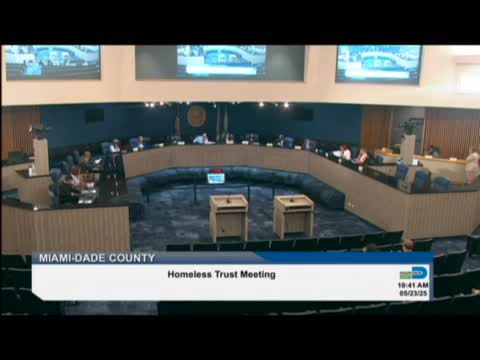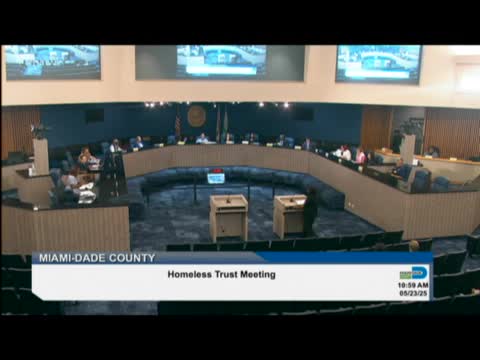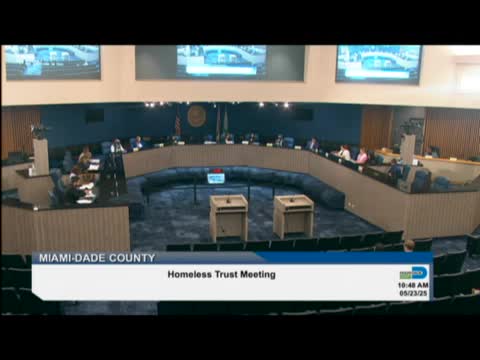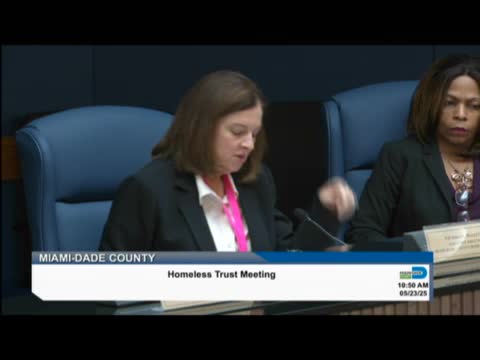Article not found
This article is no longer available. But don't worry—we've gathered other articles that discuss the same topic.

Homeless Trust approves RFAs, fiscal-agent solicitation, property conveyance and youth intake standards

Chapman Partnership reports full shelter capacity, housing placements and new workforce programs; Trust reviews economic indicators and hostel status

Trust updates members on implementation of Florida public‑camping law and outreach activity

